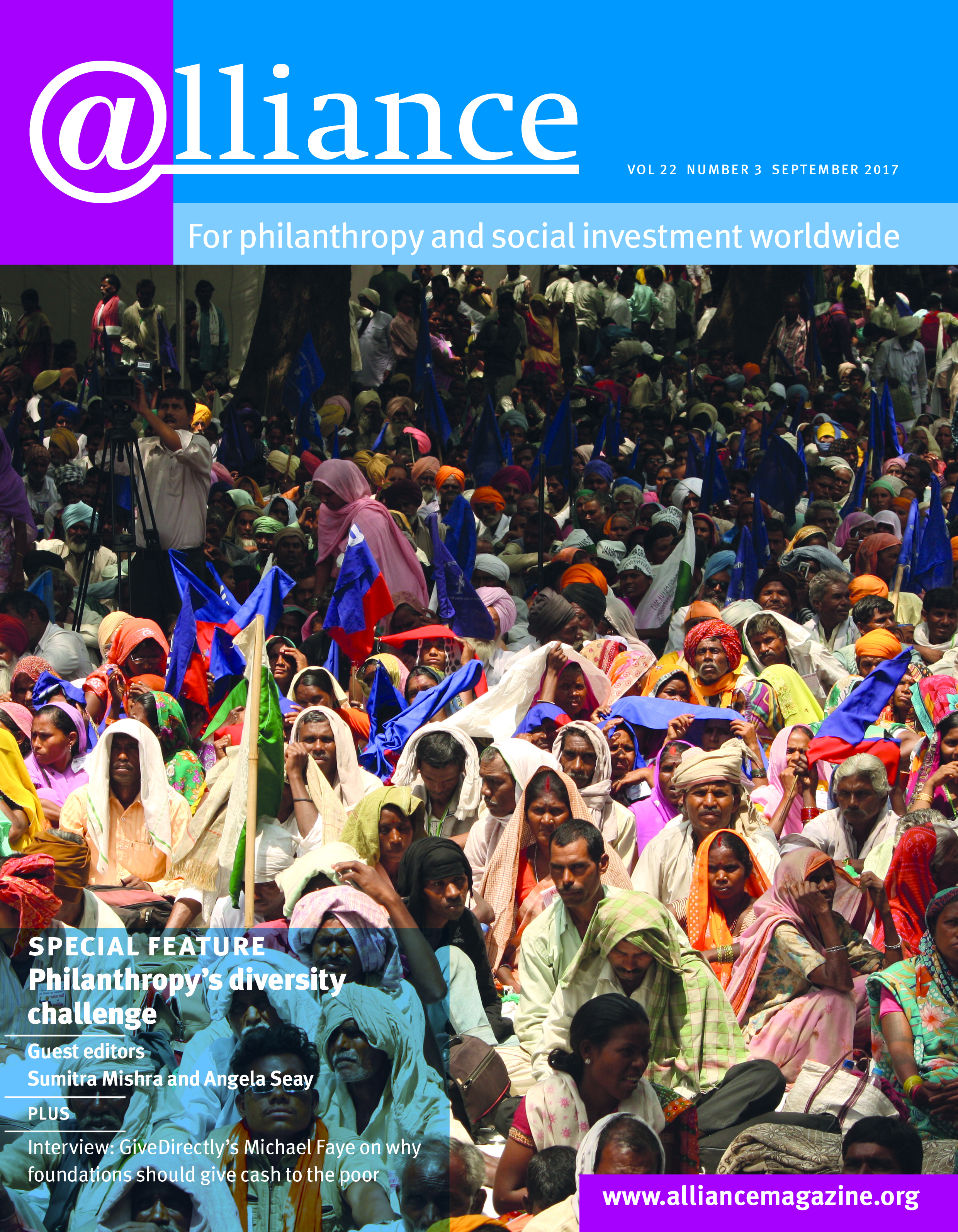This book leaves the reader both emboldened and overwhelmed at the same time. It lays out an ambitious and visionary call to action and yet makes the reader all too aware of the fundamental systemic and cultural hurdles that stand in the way of bigger and better philanthropy on the subcontinent.
 Pushpa Sundar is an iconic character in the world of Indian philanthropy through her pioneering work with Sampradaan Indian Centre for Philanthropy.
Pushpa Sundar is an iconic character in the world of Indian philanthropy through her pioneering work with Sampradaan Indian Centre for Philanthropy.
She balances her depth of knowledge of the history, research and academic thinking on India’s social sector with a wealth of practical and highly contemporary experience.
In a very approachable writing style, she brings to us deep philosophical questions and musings about the role of philanthropy in society, applicable wherever we live, with a wealth of facts and figures about giving in India – all caveated with a clear transparency about the fact that a lack of information and data is one of Indian philanthropy’s greatest barriers.
Giving with a Thousand Hands cites many of the recent reports, mainly by the leading consultancy firms, that attempt to quantify and analyse India’s giving.
It offers the hypothesis that Indians are charitable, but not philanthropic, and cites examples of nascent trends that are starting to encourage more strategic thinking and problem-solving approaches, and yet are islands in a sea of individual and religious giving that is at best ameliorative and in no way addressing India’s fundamental social problems.
A key issue is a focus on the activity of philanthropy rather than the outcomes. One of the most powerful claims of the book is that philanthropists and NGOs don’t have a clear enough vision of what they are working towards in terms of a just and equitable society.
The book meanders along more like a series of essays, with some required repetition or perhaps reemphasis along the way as the author navigates a world with a lot of cross-over between private, family and corporate giving.
Based in real examples and not just theory, the book jumps between stories of the founders of Indian philanthropy – the Tatas, Wadias and Bajajs – and examples of new donors, the implications of the recent CSR law and so on. It is brought to life by listing a wide range of contemporary philanthropists, citing what they give to and their opinions on what it will take to solve problems, improve and increase funding.
There are deep dives into important legal and administrative aspects of philanthropy including tax policy, regulation (or the lack thereof), philanthropy infrastructure and education, with interesting historical and social context on how things have developed or failed to develop and why.
These are all highly specific to India, and yet much of the critiques of the Indian social sector could be applied to the UK and US in equal measure.
My personal feeling is that watching domestic philanthropy develop in an emerging economy is of interest the world over and India is a fascinating role model. My big hope has always been that India will leapfrog and not just imitate western philanthropic practices but improve upon them.
Whether you are a fundraiser, a philanthropy advisor, a donor or an historian, this book has something for you and although it is a narrative, it is also a compendium of histories of the multiple facets that make up the philanthropic ecosystem in India. It offers required knowledge for anyone in the sector or observing India from afar, and acts as an excellent bibliography of further reading.
As the world concludes that India should be solving its own social problems, foreign funding is dramatically decreasing. However, it will still require at least a generation for domestic philanthropy to take its place.
As Sundar rightly explains, it is not just the quantum of funding that has been vital from overseas, it is the quality of funding. By no means all, but a lot of foreign funding has come with the kinds of flexibility, allocation and technical support that NGOs still require and desire.
Domestic philanthropy will not be able to replace this for a good while yet, however, perhaps this book will provide a successful fundraising tool for those of us looking to raise the vital long-term capital required to fund the next generation of philanthropy infrastructure.
Alison Bukhari is the UK director of Indian NGO, Educate Girls and a strategic advisor to a number of foundations and philanthropists. Email alisonadnitt@gmail.com.
About the book
Published by: Oxford University Press
Price: £34.99
ISBN: 9780199470686
To order: http://tinyurl.com/PushpaSundar






Comments (0)